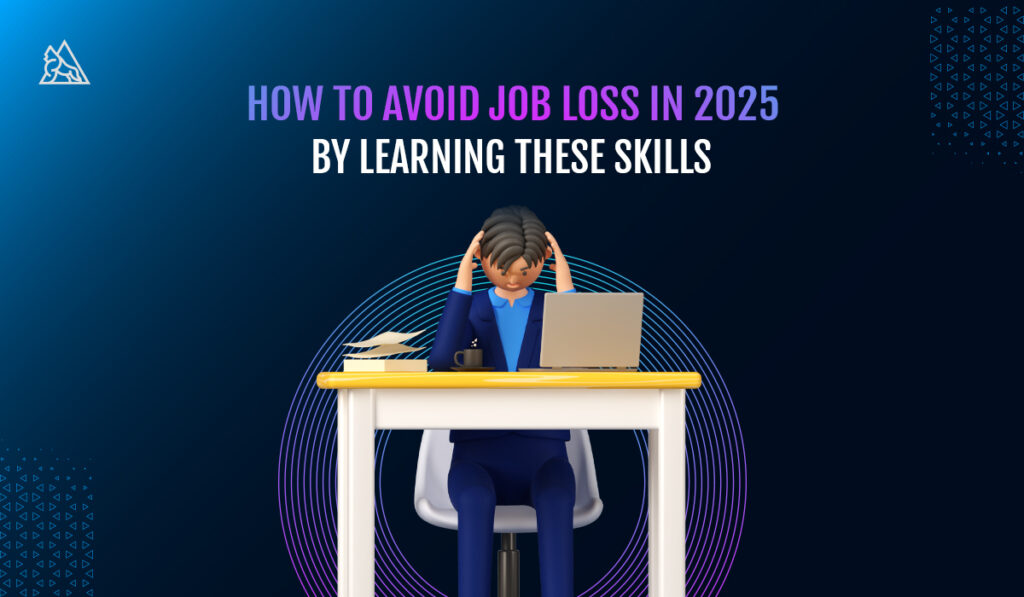The job market is evolving fast. New technologies, changing work environments, and shifting industry demands mean that the skills that got people hired five years ago might not be enough in 2025. So, if you’re looking to future-proof your career, now is the time to focus on the skills that will matter most.
Whether you’re a student planning your career, a professional looking to upskill, or a job seeker figuring out your next move, this guide will help you understand what employers are looking for and how you can stay ahead.
1. Digital Skills: The Non-Negotiables
Technology is shaping almost every industry. You don’t have to be a software developer, but having a solid understanding of digital tools and trends is becoming essential.
AI & Automation
Artificial intelligence (AI) is no longer something that only tech experts need to worry about. AI is influencing marketing, customer service, healthcare, and even creative industries. Businesses are looking for people who can work alongside AI, automate repetitive tasks, and make better decisions using AI-powered insights.
How to develop this skill:
- Get familiar with AI tools like ChatGPT, Midjourney, and Jasper.
- Take online courses in AI fundamentals from platforms like Coursera or Udacity.
- Experiment with automation tools like Zapier and Notion AI.
Data Literacy
Every company is collecting data, but not everyone knows how to use it effectively. Understanding data—how to analyze it, interpret trends, and make data-driven decisions—will be a valuable skill in almost any job.
How to develop this skill:
- Learn the basics of data analysis using Excel, Google Sheets, or Python.
- Take a free Google Analytics course to understand website and business data.
- Explore data visualization tools like Tableau or Power BI.
Cybersecurity Awareness
With cyber threats on the rise, companies are taking security more seriously than ever. Even if you’re not working in IT, understanding the basics of cybersecurity can make you a more valuable employee.
How to develop this skill:
- Learn how to recognize phishing scams and security threats.
- Take beginner cybersecurity courses from platforms like Cybrary or Udemy.
- Use password managers and two-factor authentication in your daily life.
2. Human Skills: What AI Can’t Replace
While AI is automating many tasks, there are certain skills that machines just can’t replicate—at least not yet. These human-centric skills will be highly valuable in the coming years.
Critical Thinking & Problem-Solving
Employers aren’t just looking for people who can follow instructions. They need employees who can analyze situations, identify problems, and come up with creative solutions.
How to develop this skill:
- Engage in strategy-based games like chess or Sudoku.
- Read case studies and think about alternative solutions.
- Challenge yourself to approach problems from different perspectives.
Adaptability & Learning Agility
Change is happening fast. The ability to learn new skills quickly and adapt to new challenges will set you apart from others who resist change.
How to develop this skill:
- Stay curious and keep learning new things (even outside your field).
- Push yourself out of your comfort zone by taking on new challenges.
- Be open to feedback and willing to improve.
Emotional Intelligence (EQ)
Strong emotional intelligence helps in managing relationships, understanding people, and leading teams effectively. In workplaces that are increasingly remote and diverse, EQ is more important than ever.
How to develop this skill:
- Practice active listening and empathy in daily conversations.
- Learn how to manage stress and workplace conflicts effectively.
- Read books on emotional intelligence and interpersonal skills.
3. Communication & Collaboration: The Remote Work Essentials
Workplaces are becoming more flexible, with hybrid and remote work models becoming the norm. This means that communication and collaboration skills are critical.
Digital Communication
Writing clear and effective messages—whether it’s emails, reports, or Slack messages—is essential for remote teams. Employers want professionals who can communicate their ideas effectively.
How to develop this skill:
- Improve your writing by practicing concise and professional emails.
- Learn how to structure reports and presentations effectively.
- Get comfortable using remote work tools like Zoom, Slack, and Asana.
Cross-Cultural Collaboration
With remote work, teams are often spread across different countries and cultures. Understanding how to work effectively with diverse teams will give you an edge.
How to develop this skill:
- Work on projects with people from different backgrounds.
- Learn about cultural differences in communication and work styles.
- Develop patience and adaptability in team settings.
4. Business & Financial Skills: Understanding the Bigger Picture
No matter what industry you’re in, understanding how businesses operate will help you stand out. Companies want employees who think beyond their specific roles and understand how their work contributes to the overall business strategy.
Project Management
Managing tasks, deadlines, and resources efficiently is a skill that every industry values. Even if you’re not a formal project manager, understanding the basics can help you stay organized and lead projects effectively.
How to develop this skill:
- Learn project management methodologies like Agile or Scrum.
- Use tools like Trello, Asana, or Notion to organize your tasks.
- Take an online course in project management fundamentals.
Financial Literacy
Understanding how money works—both personally and in business—is a crucial skill. Whether you’re managing a budget at work or negotiating a salary, financial literacy will give you confidence.
How to develop this skill:
- Learn basic budgeting and financial planning.
- Understand how businesses generate revenue and manage expenses.
- Take an introductory finance course or follow business news.
5. Industry-Specific & Emerging Skills
Every industry has unique skill demands, and staying informed about trends in your field will help you stay relevant.
Green Skills & Sustainability
Companies are prioritizing sustainability, so knowledge of green business practices, renewable energy, and climate-conscious decision-making can be a strong asset.
E-commerce & Digital Marketing
With the rise of online businesses, skills in digital marketing, SEO, and e-commerce platforms are more in demand than ever.
Healthcare & Telemedicine
Healthcare is integrating more technology, from virtual consultations to AI diagnostics. If you’re in healthcare, digital literacy will be essential.
Final Thoughts: How to Stay Ahead
The key to staying relevant in 2025 isn’t just about learning new skills—it’s about continuous growth. Commit to lifelong learning. 5ake online courses, read industry news, and experiment with new tools. Apply your skills in projects, internships, or freelance work.
Surround yourself with people who inspire you and push you to grow. The job market will keep evolving, and the best way to stay ahead is to keep learning and improving.
The future of work is exciting, and if you’re proactive about learning and upskilling, you’ll have no trouble finding opportunities. Start today, and position yourself for success in 2025 and beyond.










